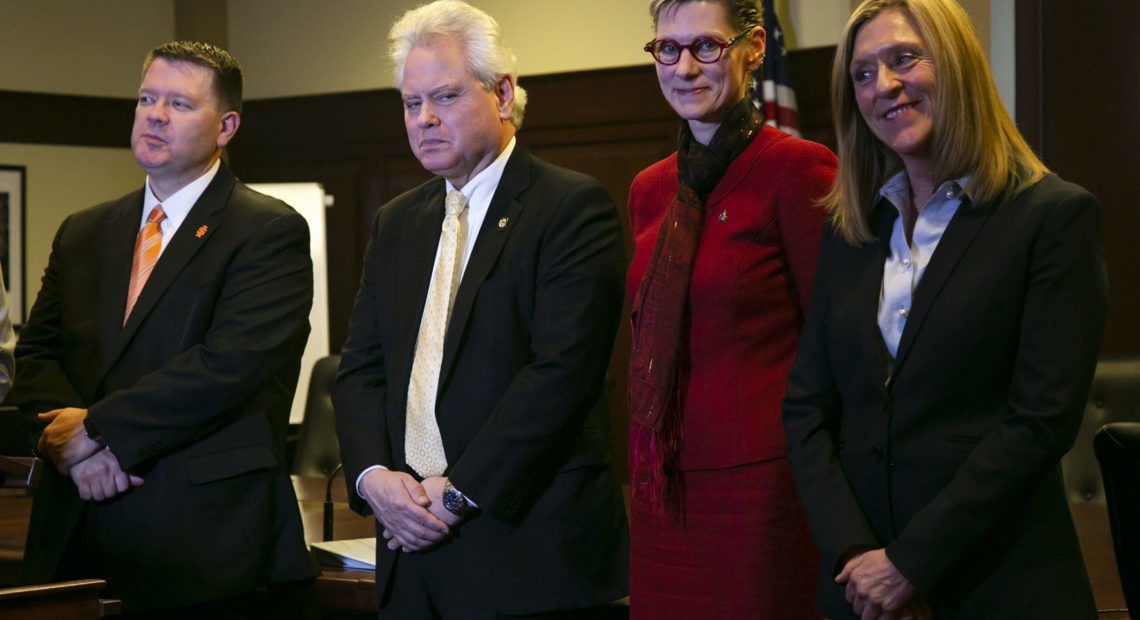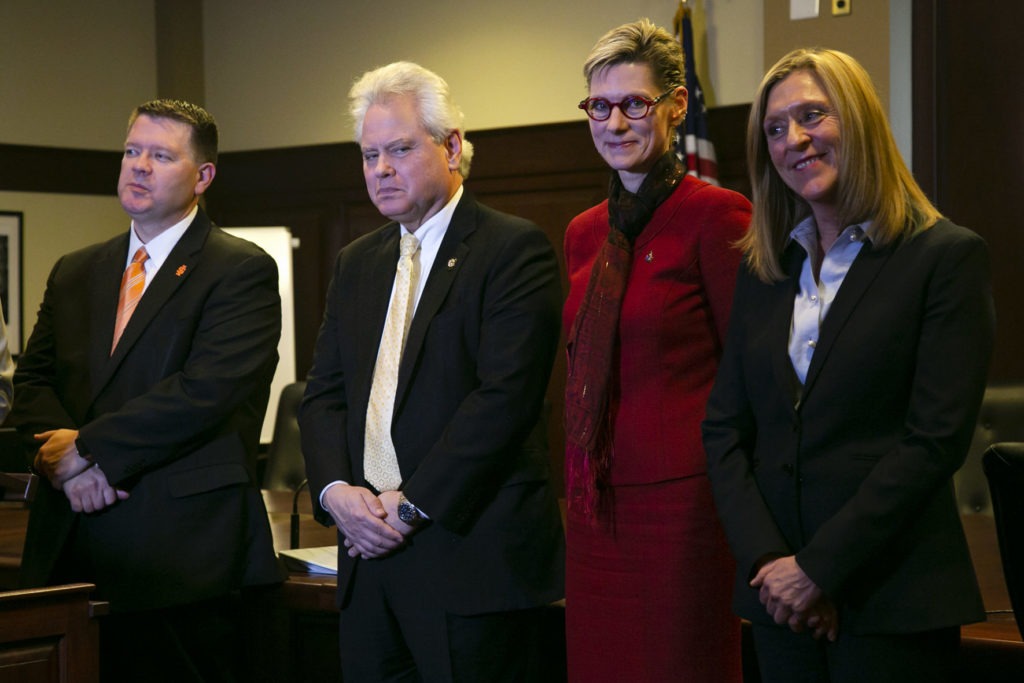
Idaho Universities Make Nearly $1M Investment In A Joint Cybersecurity Major
BY KEVIN RICHERT / IdahoEdNews.org
Highly touted during the 2020 legislative session, a new joint cybersecurity major is beginning to take shape.
Students aren’t seeing much of an effect, at least not yet. But by spring, they could start tapping into internships and apprenticeships at the University of Idaho, Boise State University and Idaho State University.
Using $950,000 in one-time state money, the universities have until June 30 to build the framework of the joint major: building student opportunities such as internships and apprenticeships, forging faculty-business partnerships, acquiring curriculum and setting up lab space. And while the three universities will share the joint major, Lewis-Clark State College and Idaho’s four community colleges also have a hand in the startup.

File photo. Idaho’s four college and university presidents — Idaho State University President Kevin Satterlee, University of Idaho President C. Scott Green, Boise State University President Marlene Tromp and Lewis-Clark State College President Cynthia Pemberton. CREDIT: Sami Edge/Idaho Education News
“I feel like we’ve been moving fairly quickly as a group,” said Toni Broyles, special assistant to U of I President C. Scott Green. “Everyone’s being very thoughtful and collaborative.”
The cybersecurity startup money was a line item in an otherwise hold-the-line 2020 higher education budget. During his January State of the State Address, Gov. Brad Little proposed the startup and challenged higher education leaders and his State Board of Education to adopt “a fresh, bold approach to meeting the needs of Idaho students and businesses by breaking down silos and working together more as an interconnected higher education system.”
Lawmakers bought in, funding Little’s $1 million cybersecurity request. But before the universities could start working on the launch, the pandemic took a bite out of the budget. Little ordered an across-the-board 5 percent spending reduction Little ordered in early July, cutting $50,000 from the cybersecurity program.
While all eight colleges and universities are working on the major, the U of I has taken on something of a lead role.
The U of I had a cybersecurity program in the works for three years, Broyles said. This fall, the U of I launched the state’s first program in this discipline: a bachelor’s degree in computer science with a cybersecurity emphasis.
Michael Haney, a computer science professor at the U of I’s Idaho Falls campus, is project manager for the joint program, in part because of his industry connections with the nearby Idaho National Laboratory.
The universities are spending considerable time — and some state money — building industry connections for students. Some will be more formal: paid co-ops between an Idaho student and an employer. Others might be unpaid internships, with the state offering student stipends to cover expenses. The goal isn’t just to offer more student internship opportunities, but to bring in industry partners who might be unable to pay for an intern, or unaware of the value the interns could bring to the workplace, Broyles said.
While the three universities are collaborating on a cybersecurity major, Broyles still expects the institutions to fill different niches. The community colleges can collaborate on professional certificate or associate’s degree programs, tapping some of the INL’s unmet demand, while university professors pursue federal research grants and the universities develop master’s level programs.
“They’re all different and they’re all important and they’re all needed,” Broyles said.
Originally posted on IdahoEdNews.org on December 7, 2020















